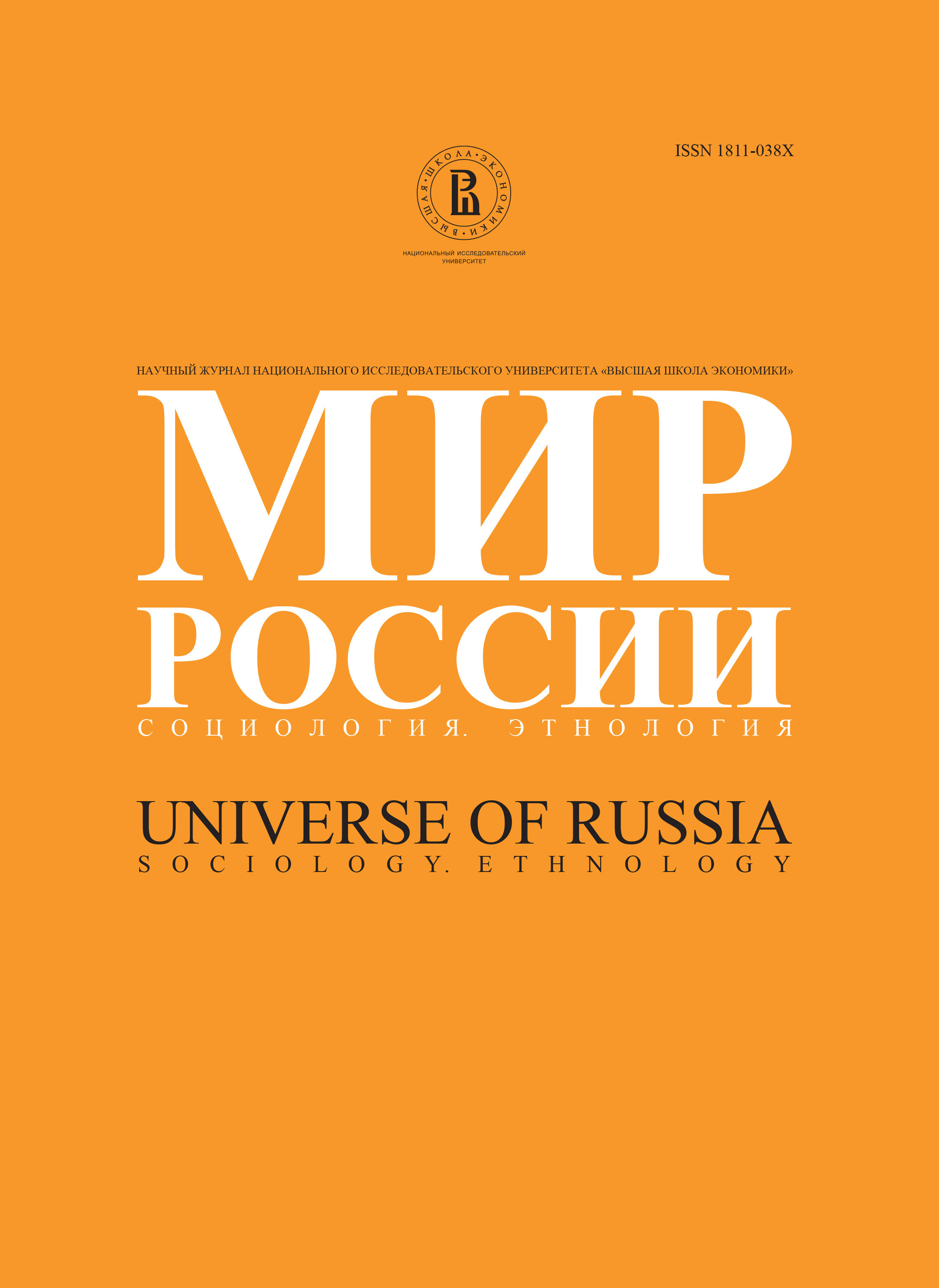Корпорации и профсоюзы – вариант России
Abstract
The article analyses modifications in the labour sphere of Russian companies and discusses the adaptation process of traditional and alternative trade unions to interaction with transnational companies (TNCs). The key issue here is how inner processes, inspired by Western management, affect the status of workers and the adjustment of trade union participation in labour relations. The research focuses on case study materials of Russian TNCs. The emergence of TNCs has brought up many positive changes in Russian companies. Along with major investments in equipment modernization and new technologies came the new corporate philosophy and social policy which shifted emphasis from labour relations to the improvement of work conditions and the settlement of interests between employers and employees. On the other side, higher earning expectations of the employees are compensated by the necessity to adapt to new working conditions: strict hierarchical order, higher responsibility and work intensification, harder discipline standards and the constant threat of being fired. The main goal of labour management becomes the reinforcement of control in manufacturing process. This has lead to the shrinkage of the work autonomy and the weakening of the influence of line managers, which were the most significant features of the pre-reform system of manufacturing management. While the former Russian labour management system was more flexible and allowed workers to work less for lower earning, it becomes absolutely impossible in the new system. Worldwide TNCs implement the model of survival competition by enforcing the mutual responsibility for the future of the companies. This model plainly discards trade unions. Nevertheless, TNCs continue to spread in Russia, where the system of labour relations was built upon social partnership principles, which never really correspond to the labour efficiency. This is why TNCs were faced with two separate types of trade unions: the new small alternative trade unions evolved according to the logics of class struggle and harsh contradictions between employers and employees as prescribed by the classical trade-unionism; and traditional trade unions, more numerous by its members, but passive and acting according to the standards developed in the Soviet system. The new Western owners have without intention become the reason for the conflict between the practice of conformist partnership and the new circumstances. The traditional responsibilities of trade unions, such as distribution of social services and the place for information exchange between employees, have become insufficient. TNCs’ presence in Russia has stimulated the activity of Russian trade unions. This had many diverse effects. First, it has brought in the intensification of the position of traditional trade unions in the enforcement of the legal and economic protection of workers. The unions had also to reconsider the mechanisms of interaction with employers and management widening horizontal contacts of unions inside the company and intensifying information exchange with employees. At the same time, this has brought further bureaucratization of the unions’ organization. Second, TNCs’ have triggered the process of forming of alternative trade unions, which was withhold with crises and internal conflicts during 1980-1990s. This trend is now becoming a clear tendency – trade unions are being established by car sellers, grocery store owners and even bank clerks. It is, of course, not in the TNC’s interest, but they cannot go against the rules and have to preserve the fair partnership. The new trade unions do not necessarily enforce negotiations in the classical sense, but rather attract and develop the protest potential of workers. It is remarkable, how many successful transnational companies in Russia, where the wages of workers surpass the average, have become the easiest prey for strikers. In the last one and a half years strikes have taken place at Ford, Heineken, Avtovaz, Evrotsement and Rusal. Overall 2007 was marked with 35 strikes, other protest activities not included. These conflicts are completely different from those of 1980-1990s, which were mostly defensive in character with primary demands to pay out the delayed wages. Todays requests of the strikers would usually include a pay rise, employment stability and the independence of trade unions. And it is also important, that these actions are not politicized and do not provoke large-scale mass actions, such as revolution. Russian trade unions are now facing the choice between class and corporate solidarity. Due to many reasons, including historical factors, this choice is yet undecided: the major part of Russian trade unions are still quite far from the critical point, where they can be a counter-force in a company. E-mail: irina.kozina@gmail.comKey words: Russian companies, modifications in the labour sphere, traditional and alternative trade unions, transnational companies






